Gaming's weird, mysterious, fictional languages, explained and translated
Now we're talking
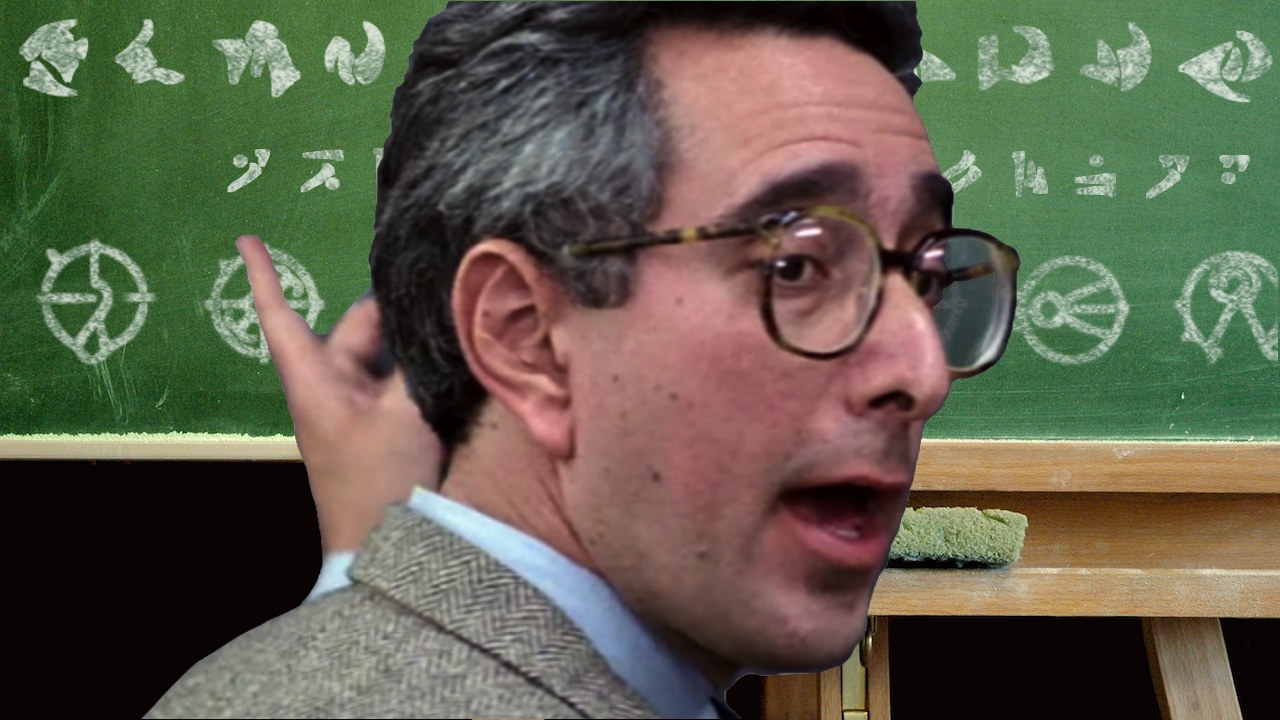
Few things are as likely to annihilate your sense of immersion as a big cheesy accent showing up somewhere it isn't welcome. A shrill Californian squawk might serve in the GTA series, but in the grubby, Game of Thrones-alike fantasy genre - not so much... Immersion is a precious thing, difficult to build, yet all too easy to tear down. Thankfully, video games as a medium appear to be getting better and better at this sort of delicate world-building, creating believable, atmospheric environments brimming with vibrant characters and rich traditions.
One sure-fire method of raising any game's level of immersion is to create its very own language. Some are simple, swapping out a letter here or adding an alien slur there, while others boast fully functioning fictional dictionaries. This list takes a good long look at 12 of these fantastical tongues, from the silly to the downright strange. Enjoy.
Modern Hylian (The Legend of Zelda)
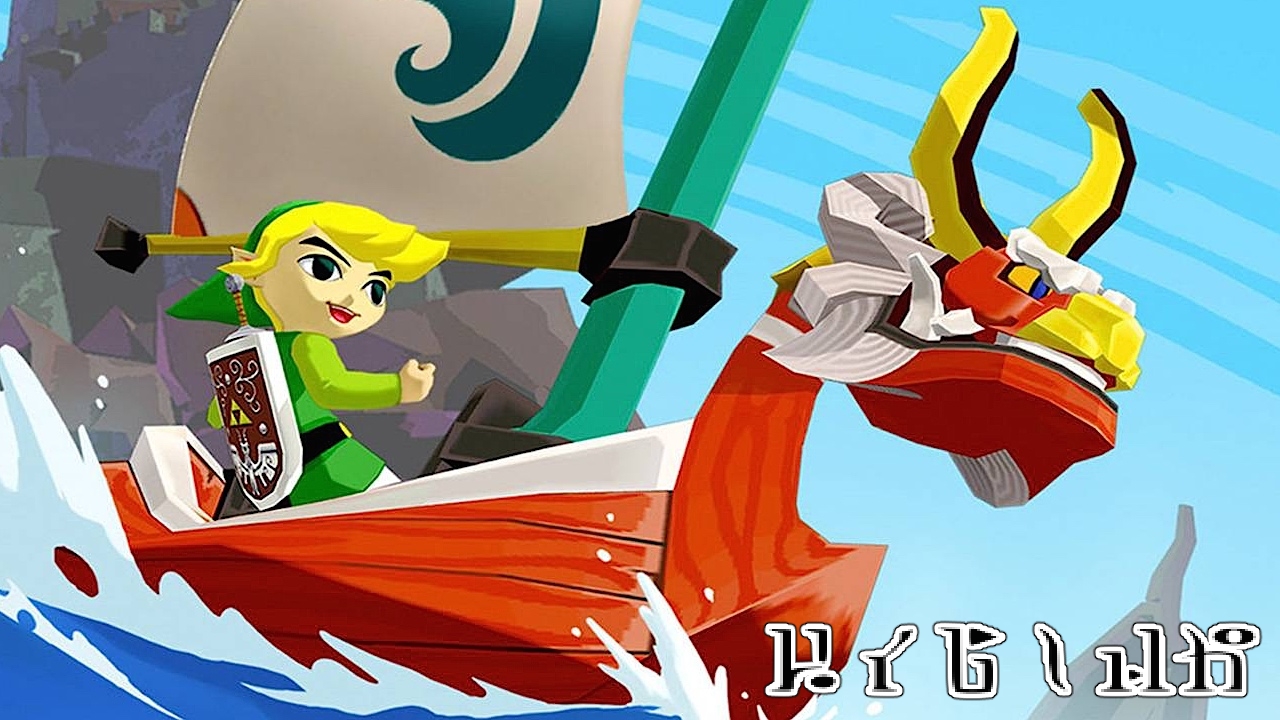
Boasting more colourful language than an irate sailor, The Legend of Zelda series represents a veritable linguist's playground. That's because the franchise plays host to a good half-dozen different tongues, each of which pertains to a distinct era or species. Hylian represents the dominant lingo, having transitioned from a simple 'logographic' alphabet - wherein a symbol (or 'logo') stands for each word - into several further forms. The series' time-twisting hijinks make any concrete analysis of their relationship difficult, with subsequent entries only serving to deepen the confusion.
For example, both Ocarina and Majora's Mask employ what is known as the 'Old Hylian' lingo, while Wind Waker advances the timeline to include a more 'contemporary' take i.e. 'Modern Hylian'. It's said that native speakers of one cannot understand the other, though both are loosely based around the same real life alphabet - that being the Japanese 'katakana' or 'kana', a 'syllabic' form in which individual characters represent syllables, rather than letters, e.g. 'pa' rather than 'p' and 'a'. So far, so strange, though not nearly as odd as the decision to switch to a Latin basis for Twilight Princess, a game in which Hylian reads more like a fancy English font. Oh, and the characters who actually speak Hylian? None of their witterings can actually be translated. They may very well be speaking gibberish. Confusing, isnt it?
Ever wanted to know your name in Hylian? Maybe you fancy writing a few foul-mouthed codes to your friends? Check out this all-in-one translator.
Dovahzul (Skyrim)

Dovahzul or 'Dragon-speak' is the unofficial name given to the language of the Dragons, comprising a 34-character alphabet, including both syllables and individual letters. As the foremost speakers of the tongue (select humanoids can also utter it), Dragons developed their alphabet through a series of runic markings, scratched directly into the rock with their claws. As such, most 'letters' appear to include some combination of scrapes and dots, the latter of which are formed by the thumb or 'dewclaw' of each beast.
In addition, certain combinations of these words are known to elicit powerful magical effects named 'shouts' or 'thu'ums',and are essentially the Dovahzul equivalent of a verbalized spell. Interestingly, Dovah lacks any proper punctuation, though being able to scream peeps off the side of a mountain is likely punctuation enough. If you'd like to know how to 'Thu'um, shake, shake, shake the room' or are simply planning on spicing up your next baby's birth certificate, check out this exhaustive beginner's guide, complete with translator.
Weekly digests, tales from the communities you love, and more
Simlish (The Sims)
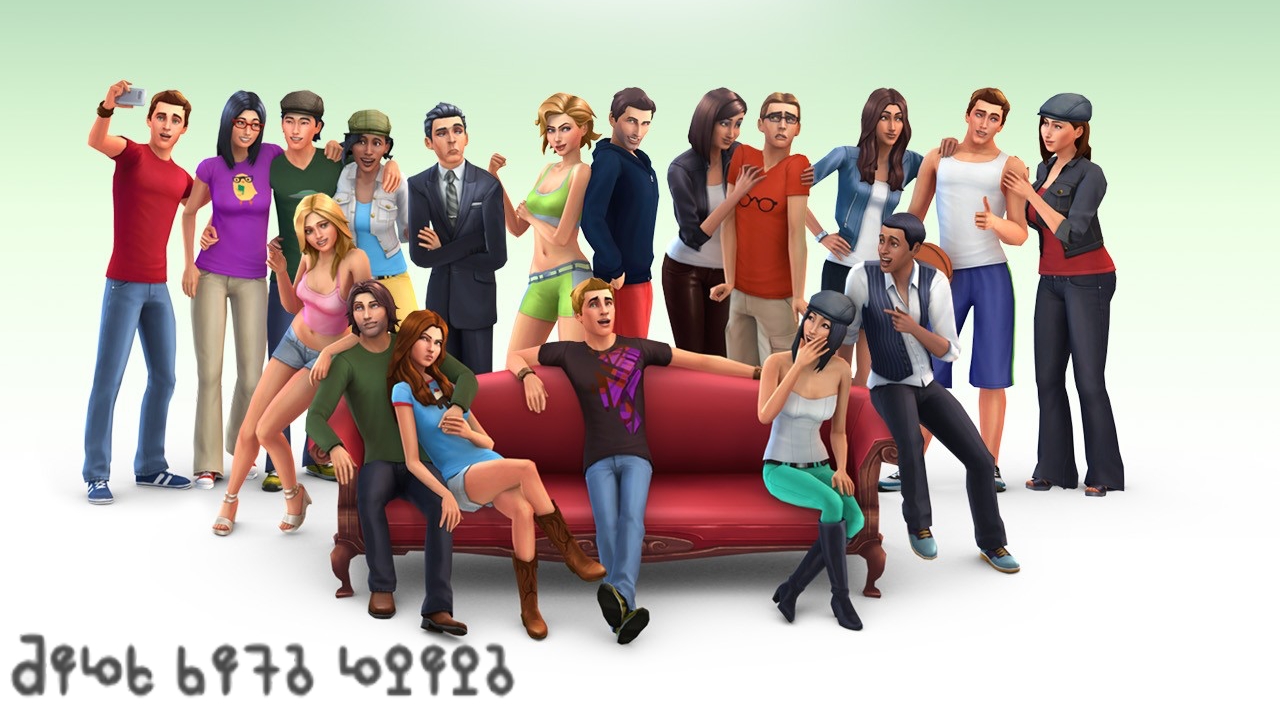
It seems as though Simlish has been around for an absolute age - so much so that you'd expect a good number of people to be speaking it for realsies, ala Klingon or Game of Thrones' Dothraki. Sadly for fans of fictional - and therefore largely useless - lexicons Simlish has never been properly transcribed. That's because it's essentially gibberish, made up on the fly by its suite of voice actors and with a minimum of input from the folks back at Maxis. Despite not operating on any kind of internal logic, certain phrases have been retained over time, though they're largely given meaning through context - i.e. an avatar's current predicament and/or frantic gesturing - rather than some legitimate basis in linguistics.
Interestingly, Simlish was originally going to involve Native American elements, though the studio eventually abandoned that plan in order to shoot for a greater sense of depth - after all, the game could only handle so many words - while constant repetition and simple translations might have ruined that aura. Yet despite its status as a nonsense tongue, fans of the series remain singularly committed to piecing together a working alphabet, using throwaway letters scattered throughout the series as reference. Sadly, all their efforts eventually came to naught when The Sims 4 introduced a whole new alphabet, one that remains riddled with inconsistencies. Curse you, language!
Panzerese (Panzer Dragoon)
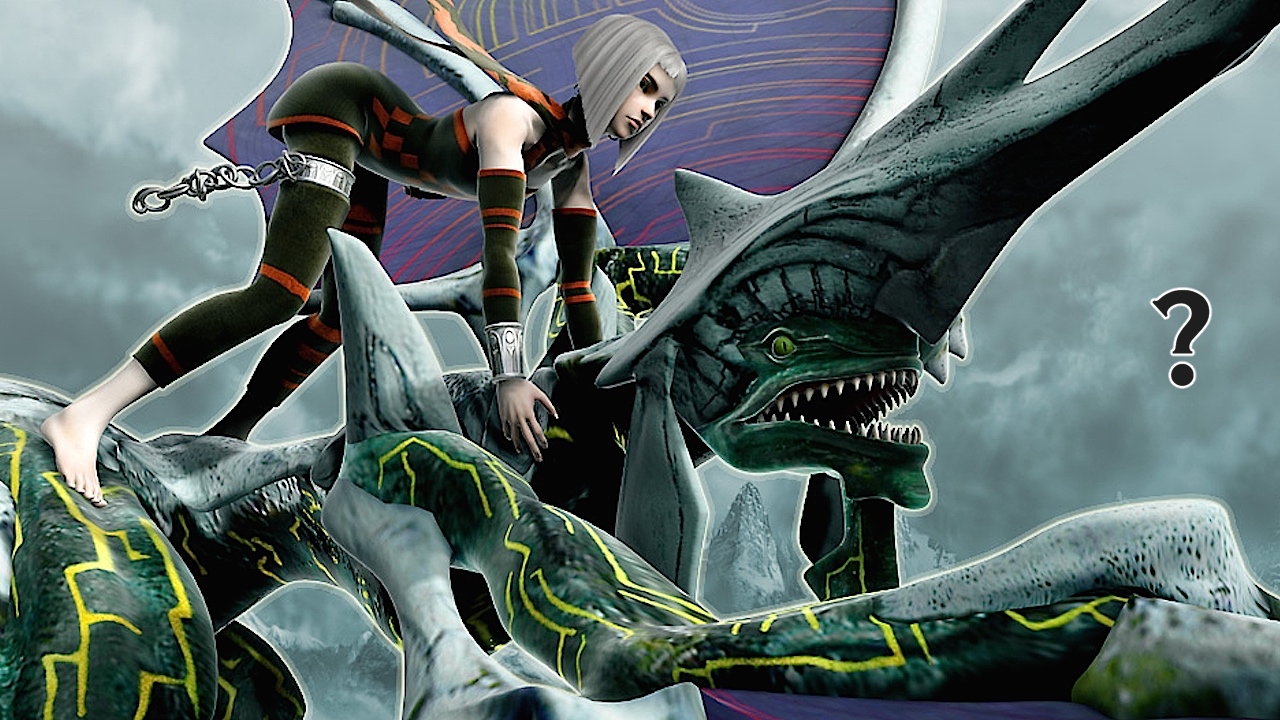
Compared to many of the entries on this list, not much is really known about Panzerese as a language. As the brainchild of one Yukio Futatsugi, project developer and ardent linguist, it contains trace elements of everything from Russian to classical Greek and even Latin, though oddly enough no apparent German (Panzer itself comes from the German word for 'armoured cart' or 'tank', while the game's sequel bares the German number 'Zwei').
For all of the series' popularity, it remains unclear whether Futatsugi developed an entire alphabet for his language, though given the man's fondness for Wings of Honneamise - an anime movie that utilises its own fictional lingo - some sort of basic consistency, perhaps in the form of scrapbook dictionary, is likely.
Al Bhed (Final Fantasy X)
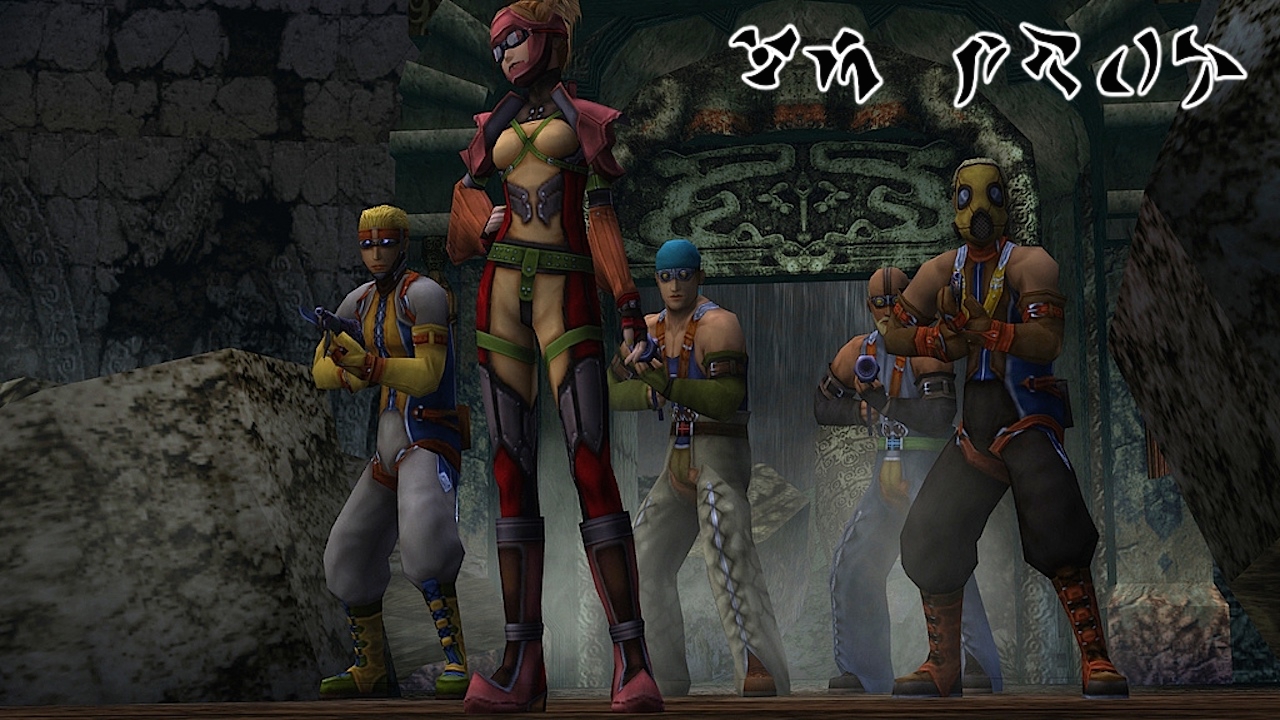
When developing a fresh new language to appear in your video game - particularly one that you intend to implement sans-subtitles - then it's important to remember to keep things simple. Maybe not captain of the football team simple, but simple nonetheless. Perhaps the fastest path to achieving this end is to employ whats known as a 'substitution cipher' - a simple 'swap this for this' deal, usually with all of the vowels and consonants kept together, otherwise it all starts to sound like Klingons at an orgy.
Final Fantasy X's Al Bhed dialect is one of the better-known examples of this technique cropping up in gaming, with player character Tidus effectively learning the lingo as the game goes on. The odd thing about Al Bhed as a language - y'know aside from all of native speakers looking like Prodigy members - is that it's letters looks like an overly stylized Latin alphabet, which would be fine and all, if not for the fact that it's a substitution cipher. A ought to look like Y, L like an M etc. Fancy making a head start on this year's tax return, but don't want to give those mean-eyed bean counters an easy ride? Why not write it in Al Bhed?! Go ahead!
Unnamed language (Brothers: A Tale of Two Sons)
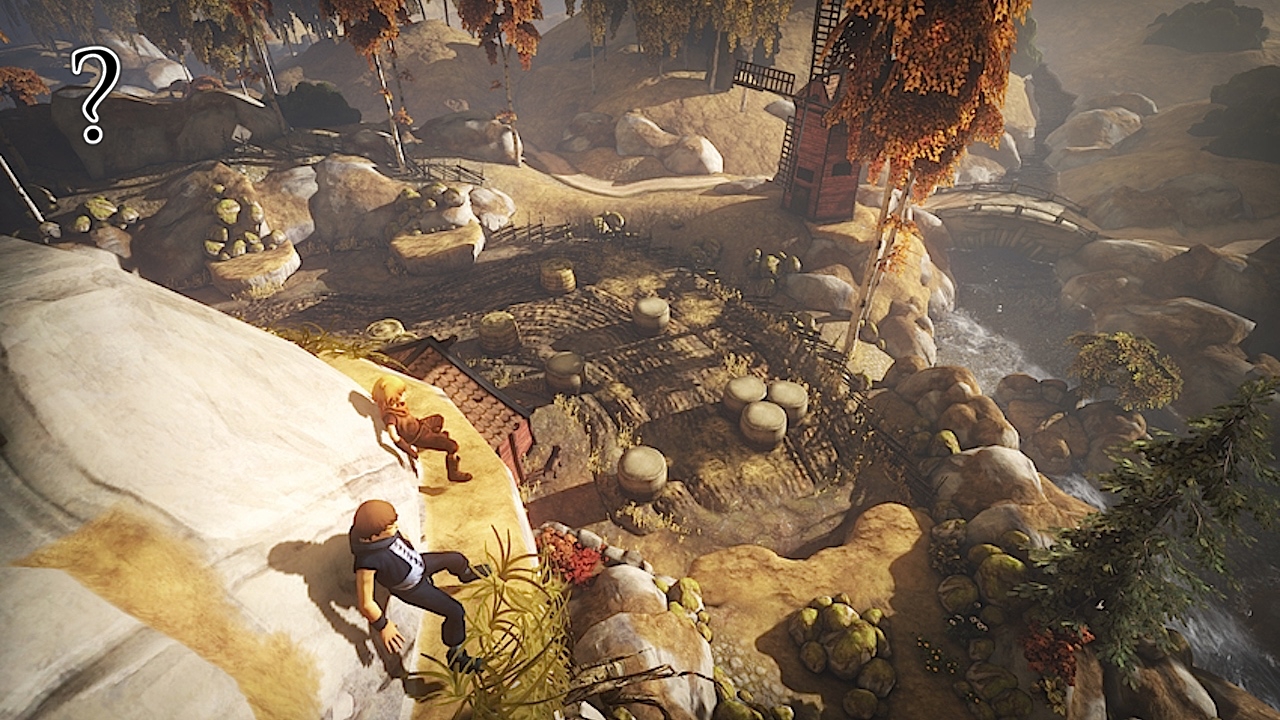
Where the gibberish of the Sims serves to add a spark of personality to an otherwise vacant cast of characters, the unnamed language of Brothers: A Tale of Two Sons has to achieve a much larger feat. That is, to communicate a wide spectrum of emotions, from the highest highs to the lowest lows. And no, drowning one of your ungrateful Sims doesn't count.
The titular siblings embark on quite the adventure, one in which neither English nor relative silence would suffice. The eventual compromise is a gibberish text, inspired by game director Josef Fares' Lebanese heritage, so while the words themselves may be nonsensical, much of the pronunciation is rooted in authentic linguistic roots.
Tho Fan (Jade Empire)
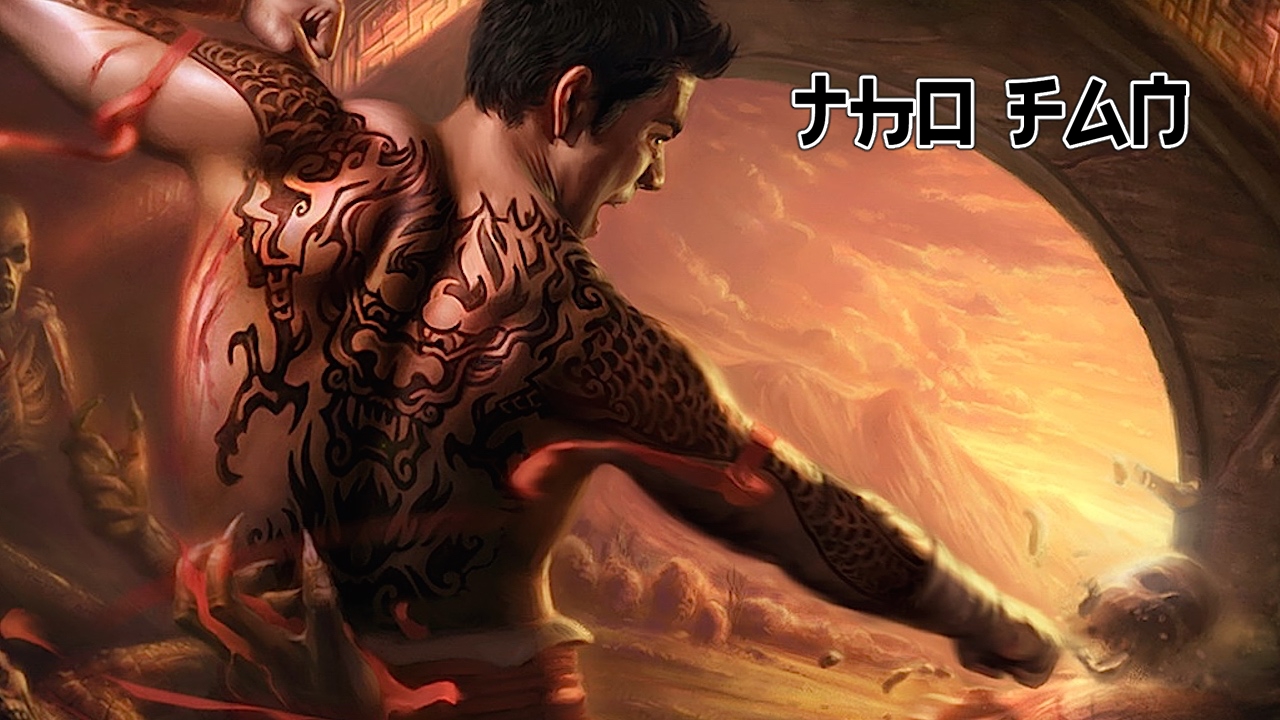
Developed by the awesomely named Wolf Wikeley - a linguistics expert based in Alberta, Canada, just a stone's throw away from BioWare HQ) - Tho Fan represents the language of choice for much of Jade Empire's powerful aristocracy. Originally envisaged as a mere servant's tongue, Wikeley's words were later repurposed, their courteous and deferential tone now standing for the effete mannerisms of the ruling class. Though designed to sound distinctly Far-Eastern - certain pronunciations reflect both Chinese and Japanese speech - Tho Fan remains largely separate from these real world tongues, establishing its unusual cadence through the atypical use of tenses.
Boasting an extensive 2,500 word vocabulary, Tho Fan represents one of the more fleshed out examples on this list, with Wikeley's good work later rewarded with the opportunity to design four more languages in Dragon Age: Origins. Sadly, it appears that no Tho Fan alphabet or translation guide has ever been released.
Various (Nier)
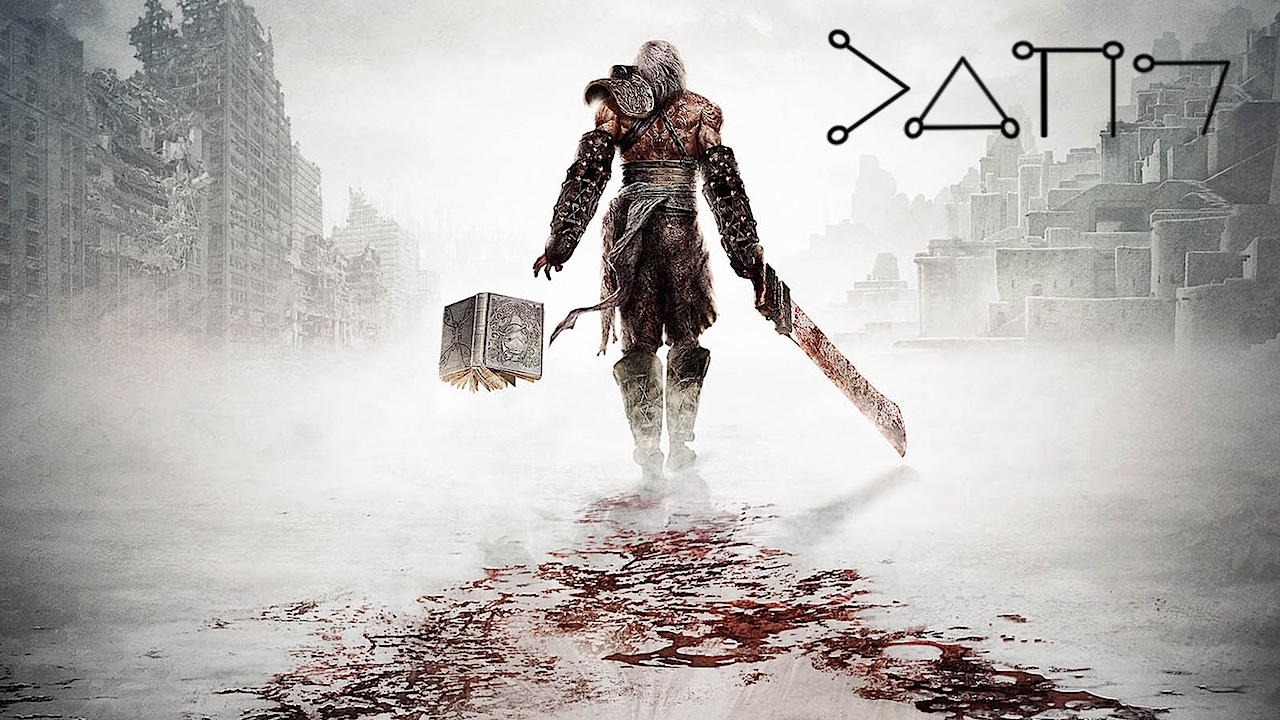
Technically speaking, Nier's Ancient Language doesn't really deserve a place on this list. That's because it's been borrowed (largely), from a little known language created way back in the 16th Century. Known as the 'Celestial' or 'Angelic' alphabet, this unusual lexis was put together by one Heinrich Cornelius Agrippa. It's intended use: to communicate with the angels. Yes, that's right, angels. I guess old Heinrich really needed to get 'a grippa' right guys?
A mishmash of Hebrew and Greek influences, Celestial text appears throughout the world of Nier, oftentimes in conjunction with the use of magic. However, the tongue is never actually spoken, or at least not as it 'ought' to be. The game's soundtrack, for example, includes many alien languages, though none with any discernible linguistic logic. Simply speaking, they're all babble, put together at the request of the game's developer by vocalist Rebecca Evans. Here, have a listen.
Dino/Saurian (Star Fox Adventures)
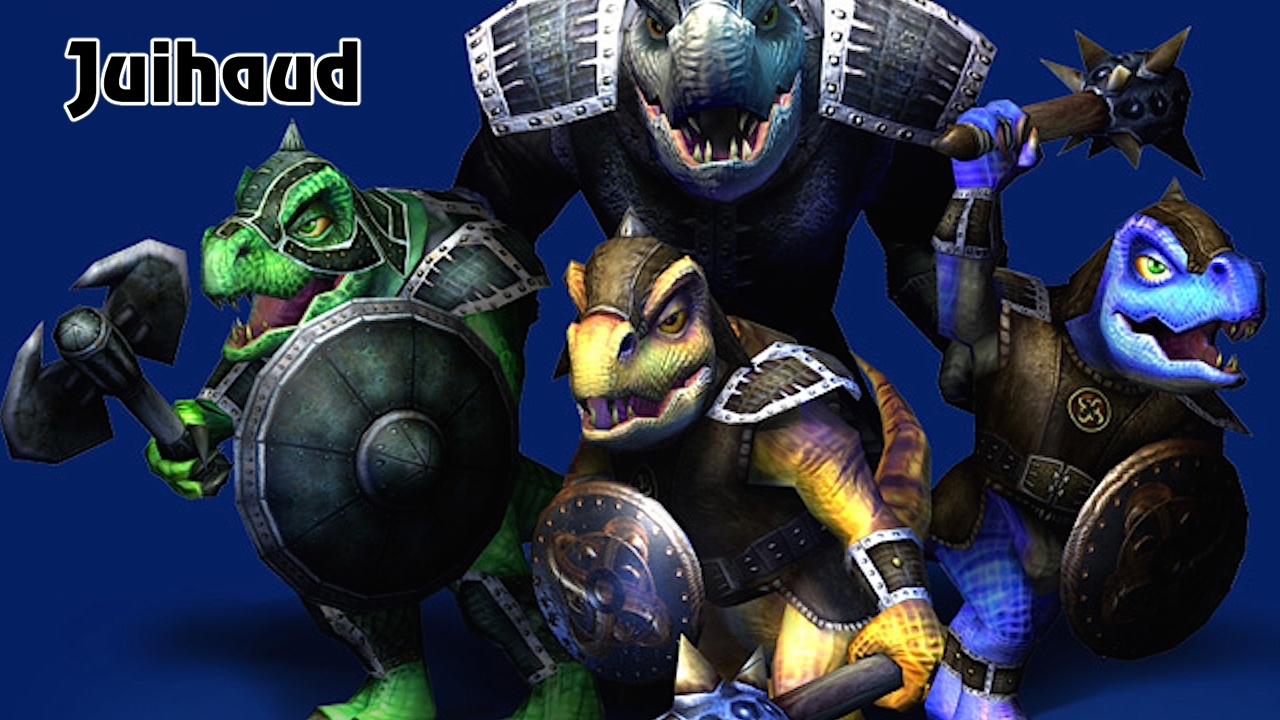
Fancy formulating a few Nintendo-approved slurs? Maybe your current will and testament is a little too easy to alter? Whatever the case, be sure to check out this online Dino translator.
D'ni (Myst)
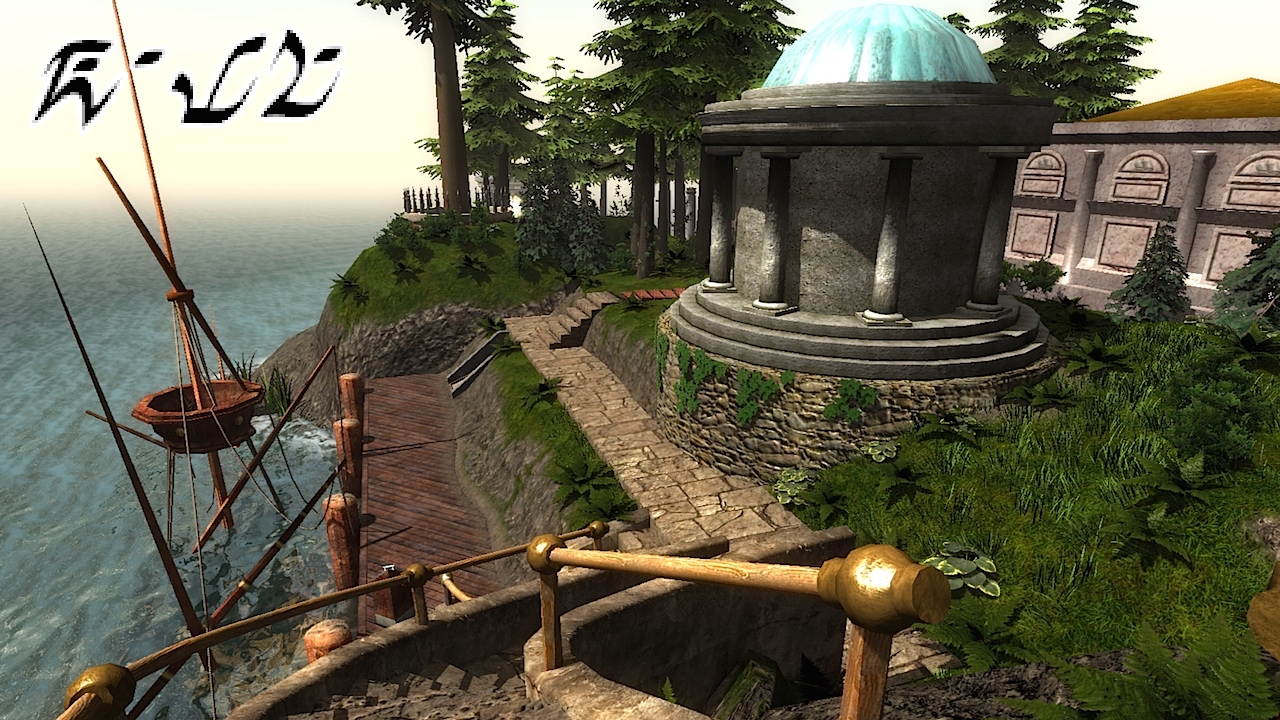
Pronounced 'dunny', this complex language belongs to a people of the same name, a race of powerful wordsmiths able to imagine new lands into being. They represent a distant cousin of humanity, and are capable of living upwards of 300 years each. Their language appears everywhere throughout the world of Myst, forming the foundation of many of the game's puzzles. The D'ni alphabet is composed of 35 phonetic sounds, each of which is represented by a unique fictional letter and box-shaped numeral.
Need to know your name in D'ni? Too bad it's a prickly little language, but you can still translate the odd word or two thanks to this old school site.
Yorda's Language (Ico)
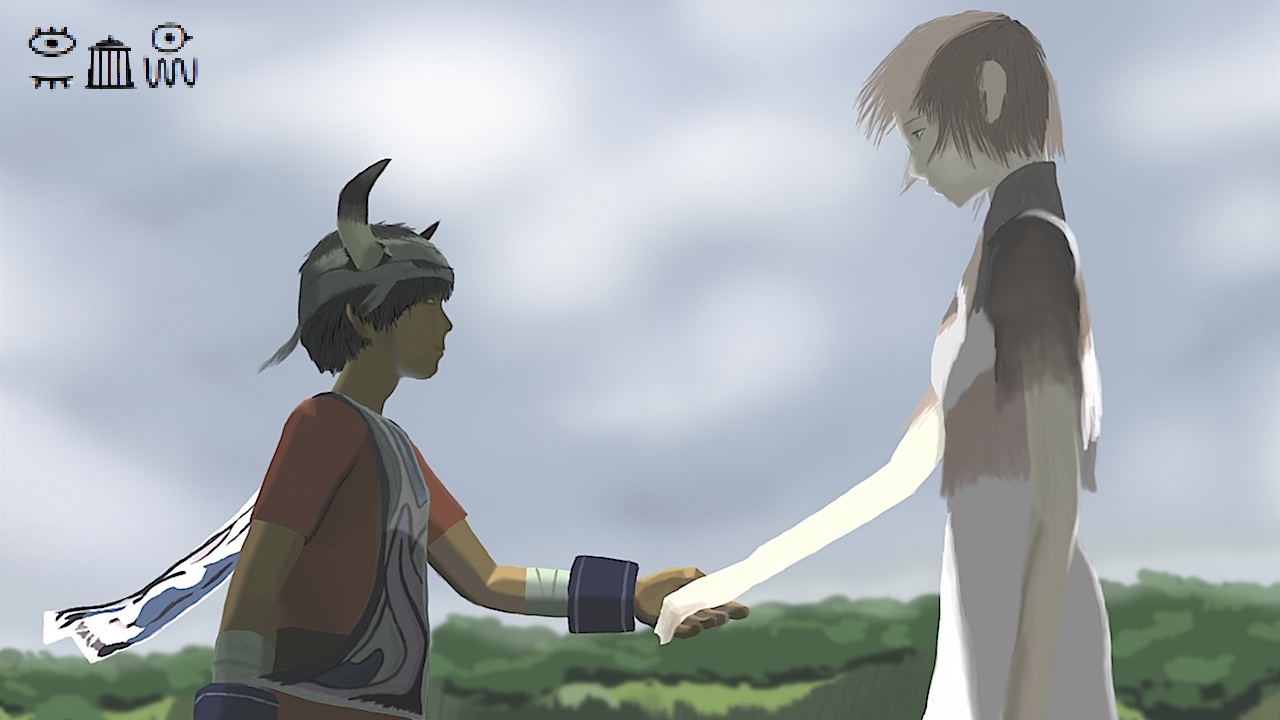
Designed by Team Ico member Kei Kuwabara, Yorda's language utilises 26 runic symbols, each with a corresponding letter in the Western Latin alphabet. Each symbol takes the form of a simplistic doodle, representing a creature, feature or action that starts with the same letter in English. For example, the symbol for 'A' bears the picture of an ant, while 'H' displays a stick figure in hiding. In the case of the letter 'I', the rule is bent in a phonetic direction, including as it does the picture of an eye.
Translating Yorda's tongue requires the player to marry each symbol to the corresponding English letter, before flipping that around to translate again into Japanese Romaji (a simpler, Latinized version of the Japanese alphabet). Simple, right?
Sangheili (Halo)
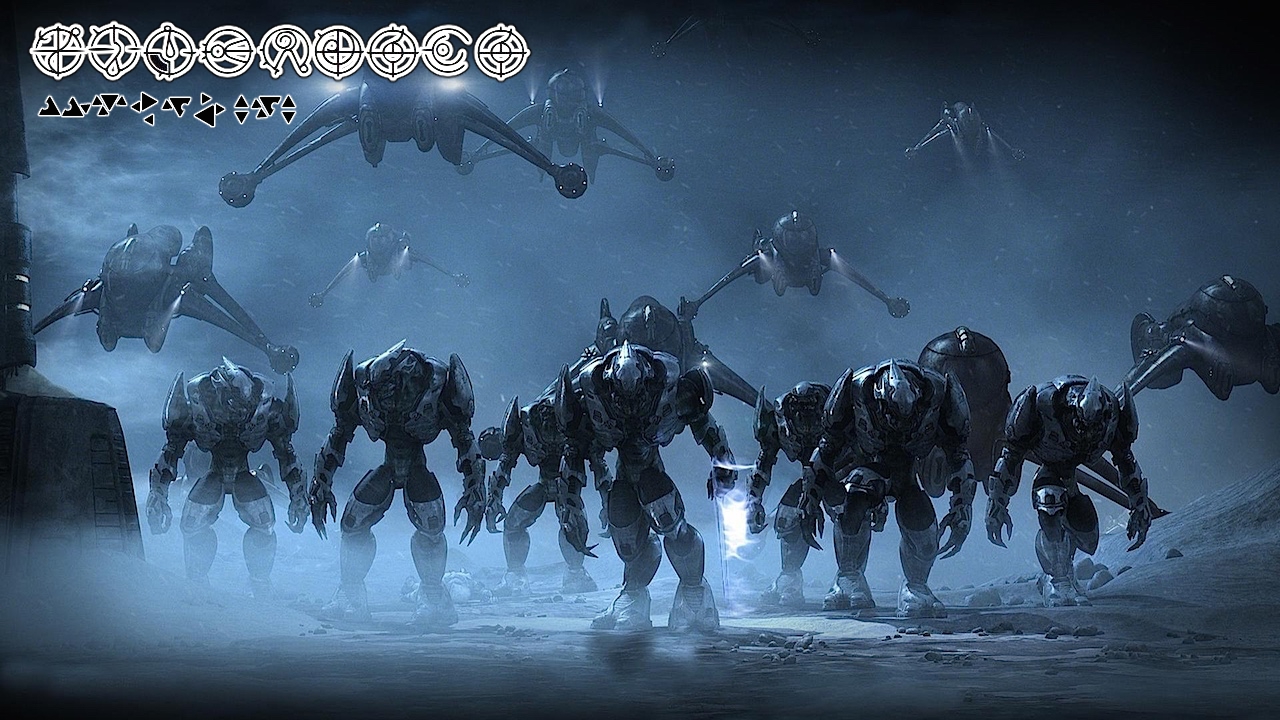
Though the Covenant faction is made up of several different species, the Sangheilis' status as its warrior elite - mankind's word for the genus - has ensured that their language achieved dominant status. Those races that display difficulty in speaking the tongue are fitted with personal translation devices. The language appears to place proper nouns - representing the subject of a pronouncement - at the start of each sentence, so "How's it hanging Chief?" becomes "Chief, how's it hanging?" and so on. The Sangheili appear equally capable of transcribing their tongue in both Forerunner text and the more angular, Covenant scripts.



